Taxing sugar: sweet and sour
- Published
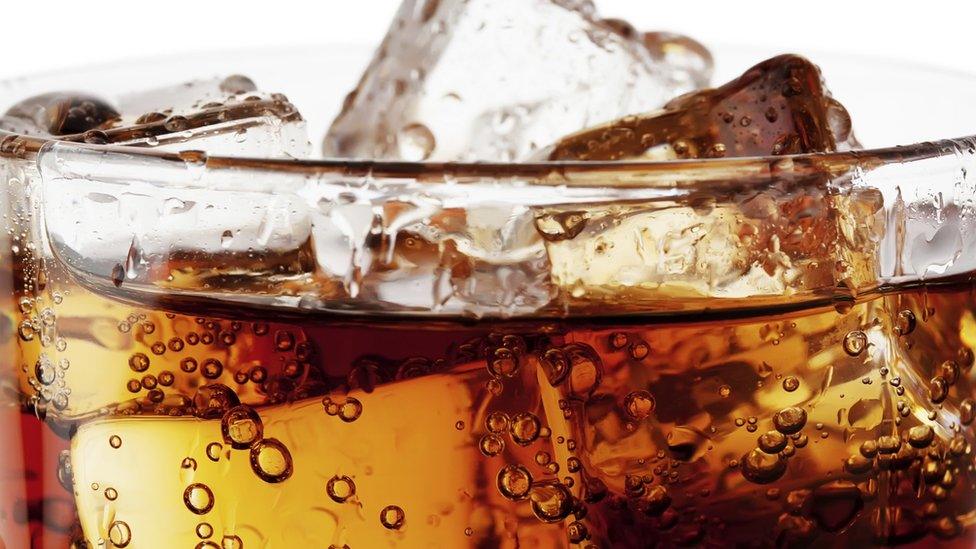
A year after the Treasury put plans in place to tax sugar-rich soft drinks, including Irn Bru and Coca-Cola, it's having a faster hit than expected - or than manufacturers admit.
Maybe it's just coincidence.
First, the UK government announces that it will impose a levy on sugar-laden soft drinks, giving manufacturers a couple of years to adjust.
Then, those manufacturers suddenly spring into action, cutting sugar content in response, they claim, to "changing consumer tastes".
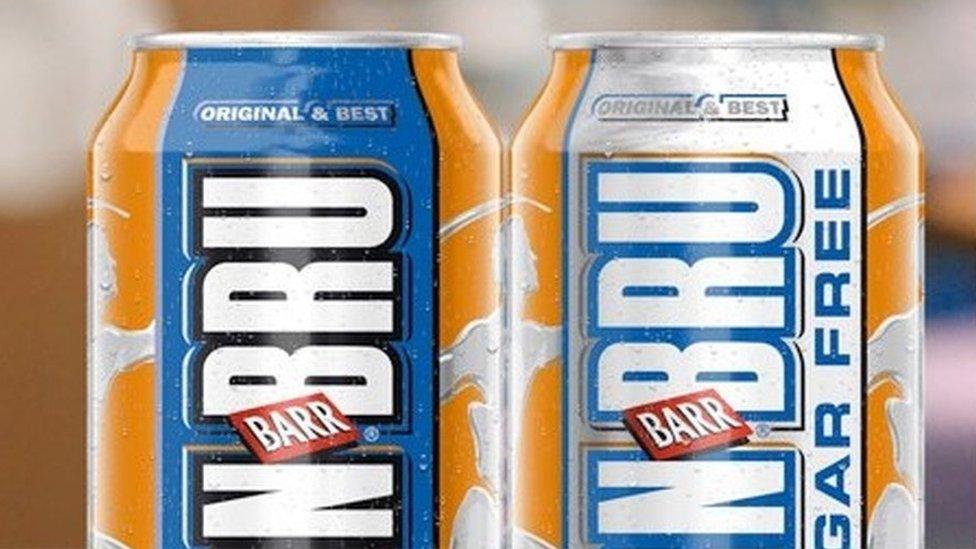
We respond to our consumers, says Irn Bru-maker AG Barr - not to regulators.
The reality may indeed have something to do with consumer tastes changing.
But it also looks probable that the companies don't want to admit the looming sugar levy is doing what it's meant to do, and faster than expected.
No business sector likes tax, least of all when it's intended to discourage people from consumption of their main product.
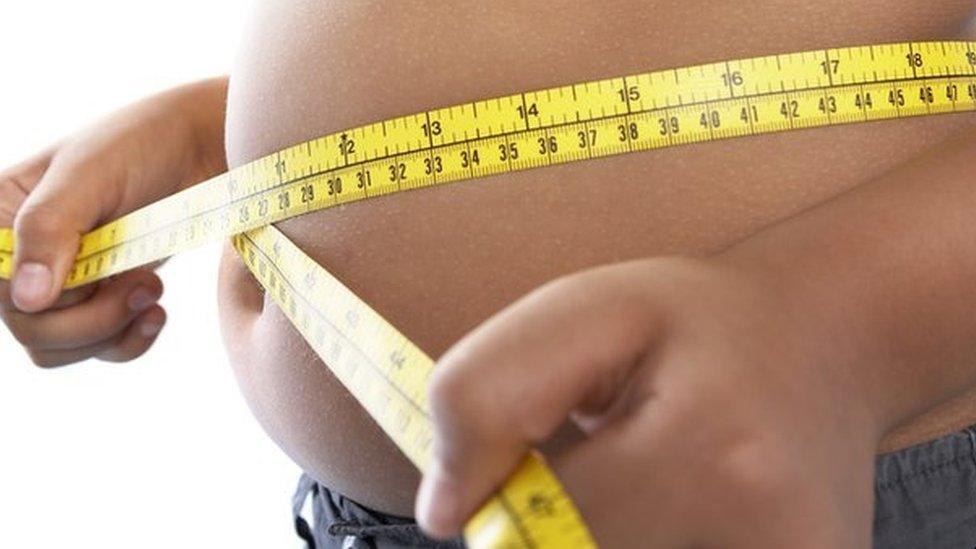
So the industry is pouring a lot of energy into arguing that sugar taxes don't work.
Channel 4's Dispatches reported this week on high-level lobbying and the threat of legal action.
Coca-Cola has denied at least the latter, but not made much pretence that it is campaigning against the levy.
The evidence on the effectiveness of a sugar levy is offered from other countries, from Mexico to Denmark.
The World Health Organisation has suggested a levy of at least 20% on sugary products.
Inelastic demand
But manufacturers claim a tax on sugary drinks doesn't, or won't, make a significant impact on obesity.
Demand appears to be a lot less elastic than the trousers those tubby sugar addicts have to wear.
Lots of people keep drinking the stuff whatever the price, they say.
And the lowest-income groups are - it is further claimed - least able to kick the sugar habit, so pay most of the tax.
Add to that some economic modelling which appears to show thousands of job losses and a hit to national output.
What makes a difference, goes the argument, is consumer education, reformulating the content of the product, and cutting back on portion sizes.
It looks like the government has succeeded in changing a lot of that product formulation.
Coca-Cola is planning yet another no-sugar take on its flagship brand.
Coca-Cola Zero Sugar is, it claims, its biggest product launch for 10 years.
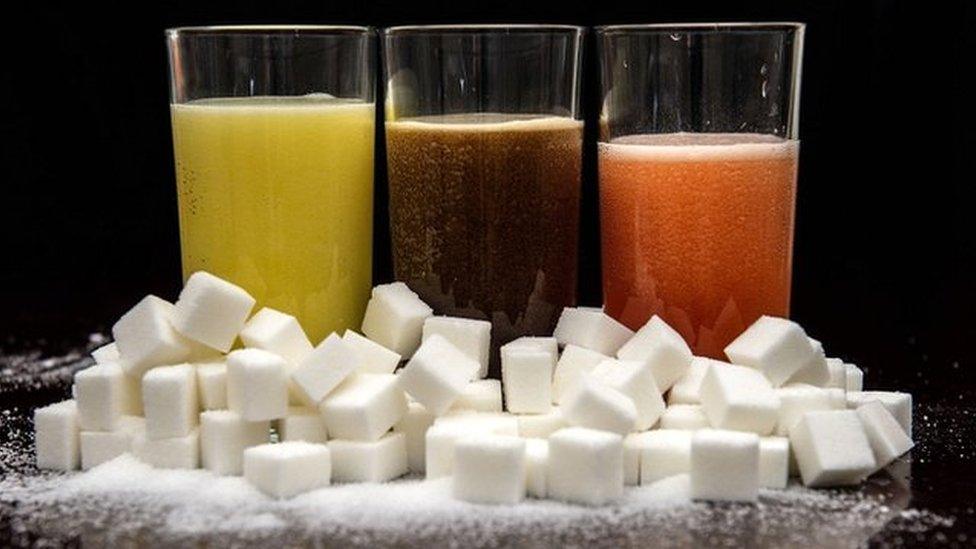
The levy on sugary drinks will fund physical and mental health projects in school
It has launched 27 new brands since 2005, with a low or no sugar option on all its main brands.
Since 2012, the Atlanta-based giant claims to have spent £30m on research and development. (I'm no expert in carbonating flavoured water, but how difficult can it be?)
And, yes, Coca-Cola claims this is in response to changing consumer demand.
The UK government's data points to a 44% fall in household spend on sugary soft drinks between 2004 and 2014, with those being replaced by low or no-sugar soft drinks or bottled water.
Kantar, the market research company, says sugar in soft drinks sold for home consumption was down 14% between 2012 and last year.
Crossing the Rubicon
Irn Bru maker AG Barr, which set out its annual figures this week, with flat revenue, has set itself a target of 90% of the volume of its sales being below the sugar tax threshold of 5 grams per 100 millilitres.
The target is to get there by this autumn, six months before the levy is to be introduced.
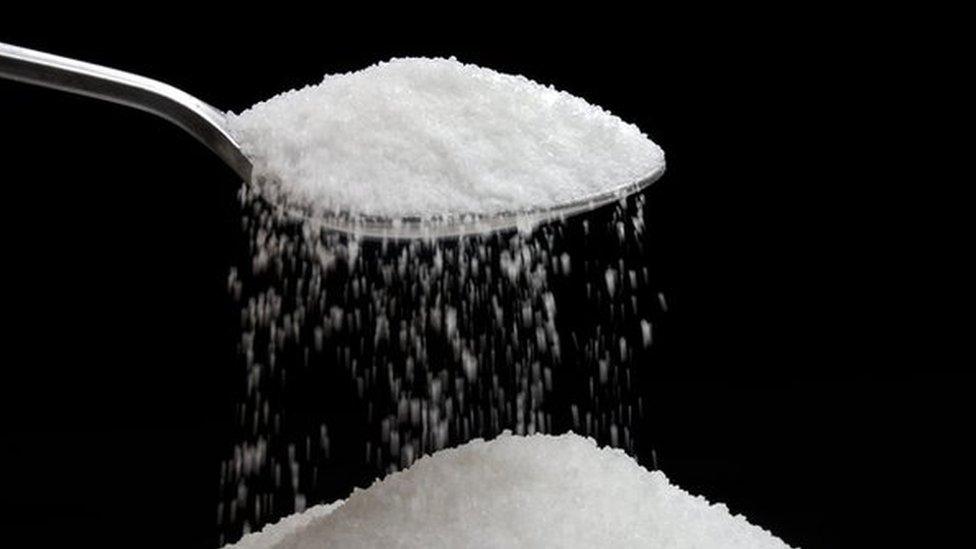
It has made a start with a big marketing push for Irn Bru Xtra, which has a more intense taste (I'm told) than Irn Bru Sugar Free.
These two sub-brands already account for 35% of Irn Bru sales, and growing.
The standard sugary Irn Bru is itself coming under the 5 gram per 100ml threshold by autumn.
Rubicon is a fruit drink which sells particularly well to ethnic minority customers.
Its market was London-centred until AG Barr took it over.
Those of south Asian origin have a stronger risk of type 2 diabetes, and the sugar in Rubicon doesn't help much.
It now has a non-sugar Rubicon Spring option (8 million bottles sold in its first six months), or Rubicon Light and Fruity, which has 50% less sugar than the main brand.
Tax anomalies
That 5 gram threshold is - surely not coincidentally? - the one chosen by the government for the lower band of tax. For the really sugary drinks, with more than 8g per 100ml, there's to be a higher tax band.
The lower rate comes to 18 pence per litre, or 6p on a standard can of Coke or Irn Bru. The higher rate is at 24 pence.
The Institute for Fiscal Studies points out the many anomalies thrown up by setting such thresholds, as if no-one had learned from stamp duty or alcohol duty.
Not least among them is that the levy reduces as the concentration of sugar rises, whereas the tax experts suggest a levy per gram of sugar would at least make more sense.
It is also pointed out that those with a sweet tooth can still get a sugar hit from fruit drinks that fall outside the reach of this targeted levy, or they (we!) can munch on a bar of untaxed chocolate. Or cake!
Yet, for all the criticism, so successful is the levy that, even before it's been introduced, the Office for Budget Responsibility has already slashed the amount that it's expected to raise.
In March last year, when then Chancellor George Osborne announced the levy, he was looking to bring in £520m when the tax is introduced in 2018-19.
That was expected to fall in subsequent years as manufacturers adjust to the incentive.
But as they're doing so already, the revenue from the introductory year has been slashed.
While £45m more could be made from taxing imported sugary soft drinks (excluded from the previous plans), the Office for Budget Responsibility now reckons the total tax take in 2018-19 looks more like £380m.
If those changing consumer tastes are a coincidence with the tax plans, then it's a happy one, even if they put Treasury plans on a diet.
- Published28 March 2017

- Published16 March 2016
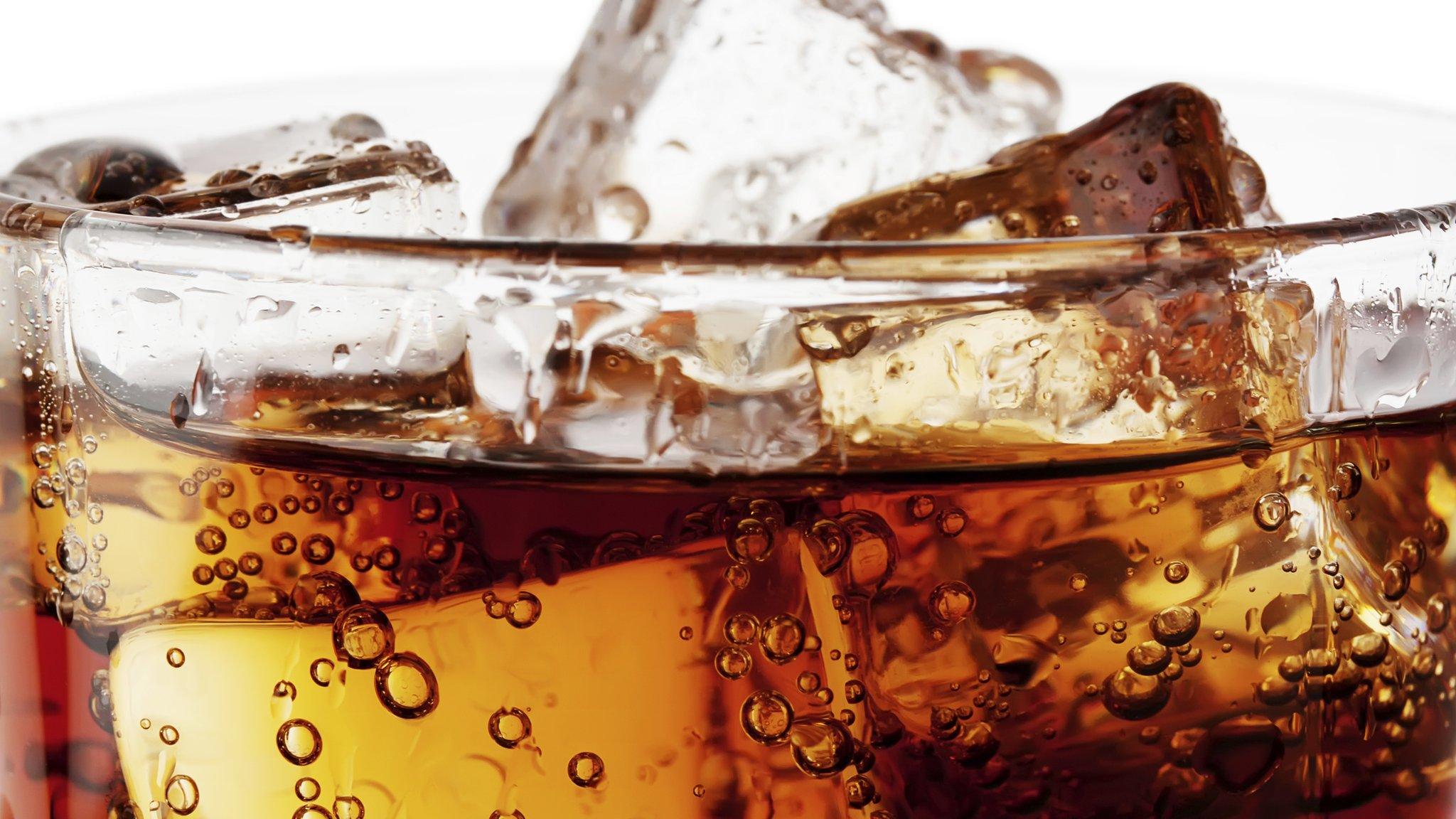
- Published1 March 2017

- Published5 December 2016
